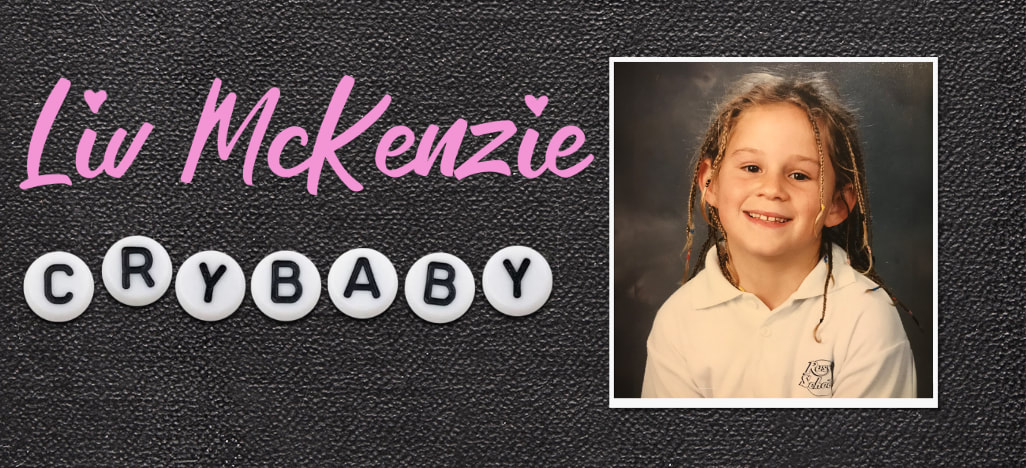Jack McGee
She starts by requesting that us sitting on the fringes (guilty as charged, hiding at the back) move in to make life easier. This is a great call, delivered with good natured charm and confidence - she’s careful to never feed our worry about the hour to come. We’re all still tense, conscious that we’re the uphill McKenzie has to battle here.
McKenzie is described on Crybaby’s Comedy Fest page as a “committed overshare-er”, and she lives up to this immediately. How better to break the ice than with an extended story about bowel problems? By the time we’ve reached the apex of McKenzie’s first tale, an epic saga about when she spotted blood in her shit and the great lengths she went to get it checked, the ice is well and truly broken. McKenzie excels in moments of TMI vulnerability, elevated to melodramatic proportions. Case and point, the image of her pacing back and forth in a medical lab, clutching a plastic bag of her own poo, weeping because “this is the second time in two weeks her shit has been rejected.”
Crybaby is loosely structured around moments like this. Be it on a train in New York getting brutally snubbed by a support dog, at Airport Security struggling to return to New Zealand, or while pitching to the Billy T judges why she should be eligible for the award, many of which McKenzie finds herself bursting into tears. When she’s not actively crying, she’s drunkenly embarrassing herself in front of Rhys Darby, or winning fist fights at Dua Lipa concerts.
Near the end of the show, there’s a beat - almost blink and you’d miss it short - where McKenzie reflects on her relationship with comedy. She describes how afraid she is of ever being an annoyance, or a burden, to the people around her and that she loves comedy because it’s never the case. I’m extrapolating a little, but the implication is that these melodramatic, high-emotion, anecdotes which cause all sorts of social anxiety and internal grief in the “real world” do the exact opposite on stage. Sitting at the ambulance bay, blood streaming down her face, after the Dua Lipa punch out, the paramedics are shocked by how unfazed McKenzie is over being punched in the face. “I’m a comedian”, she explains, “it’s really hard to come up with new material.”
I find myself wishing that this moment of reflection could be allowed to breathe a little more. Most of McKenzie’s best moments, including many a well-crafted payoff, are rushed past or diluted by throwaway lines. While many of these lines are funny, they distract from McKenzie’s strong, methodical, written material . There’s expertly designed phrases, such as a description of an overly gentle sexual partner holding her “like he was trying not to get fingerprints on a glass table” or the revealing admission that McKenzie is “very non-confrontational, because she’s VERY confrontational”. There are even misdirections which are spectacularly well thought out, including a gag about a flatmate who always gets McKenzie’s name wrong, which remain un-punctuated, un-highlighted, and get lost in the crowd.
A purportedly 55 minute set which runs closer to 70, it’s hard not to view the opening night of Crybaby as expressly a testing ground for new material. McKenzie even alludes to this, openly acknowledging some jokes that are bound for the cutting room floor. Comedy obviously needs to be worked in a room but I maintain my general stance that the International Comedy Fest is a questionable place for this - especially when the wider subtext is that Wellington audiences are just guinea pigs for the much bigger Auckland crowds.
Odds are if you see this show in two weeks at the end of the Auckland season, you’ll get a precise, streamlined, hour where all of McKenzie’s best gags are allowed to sing. It’s a bummer that that version of Crybaby doesn’t exist out the gate but it’s still a solid night of comedy and an impressive feat of winning over a difficult audience.






